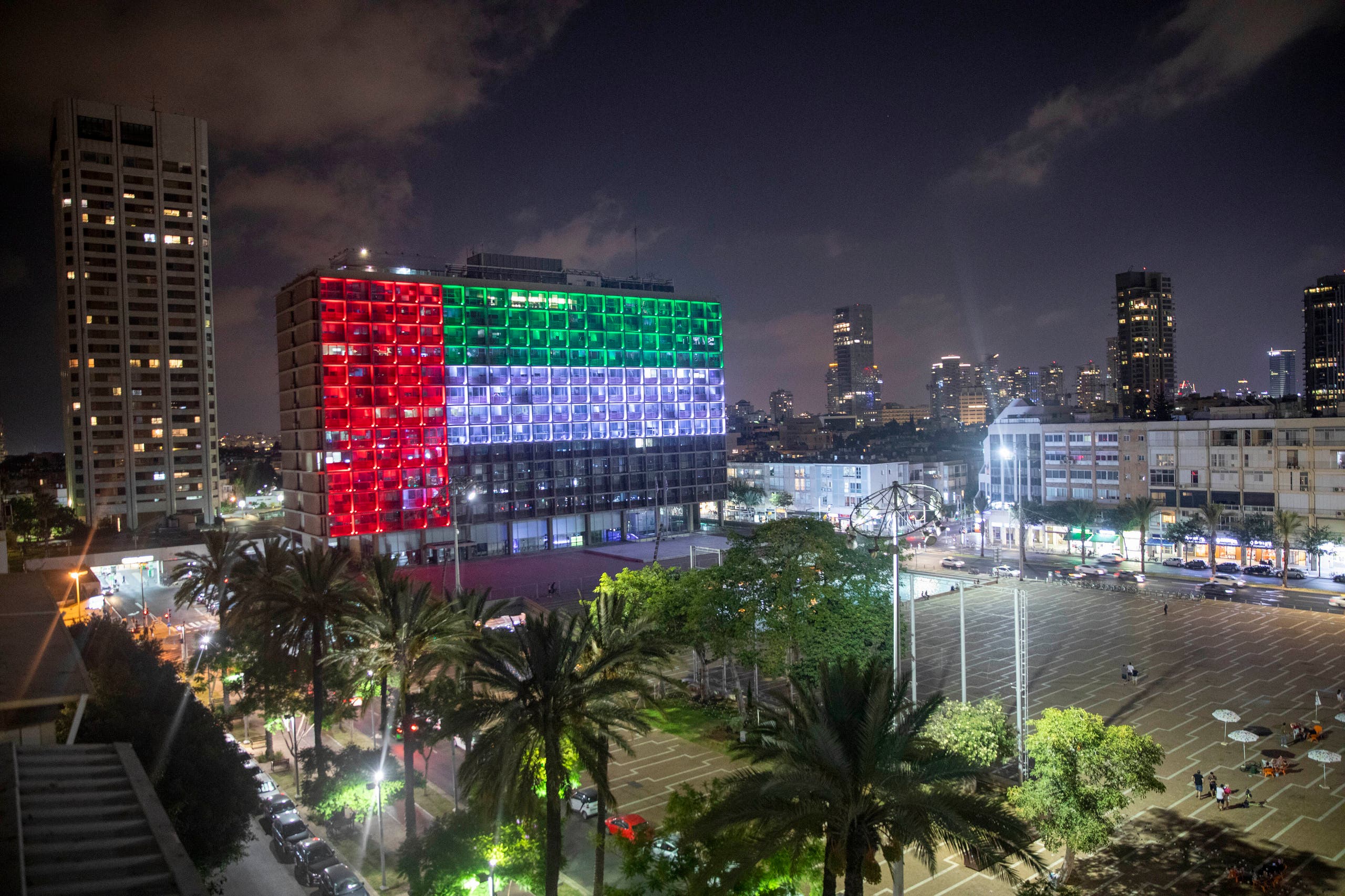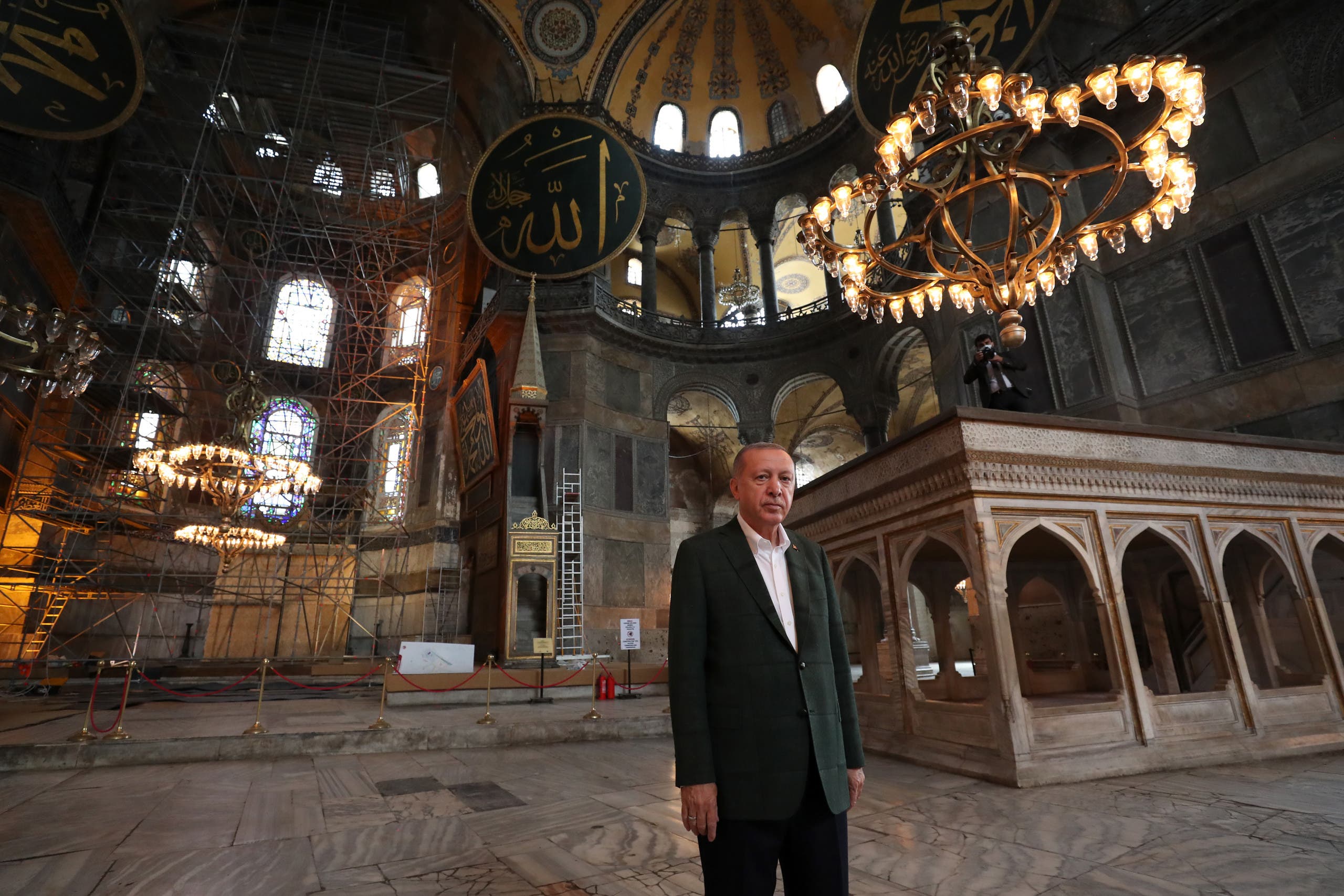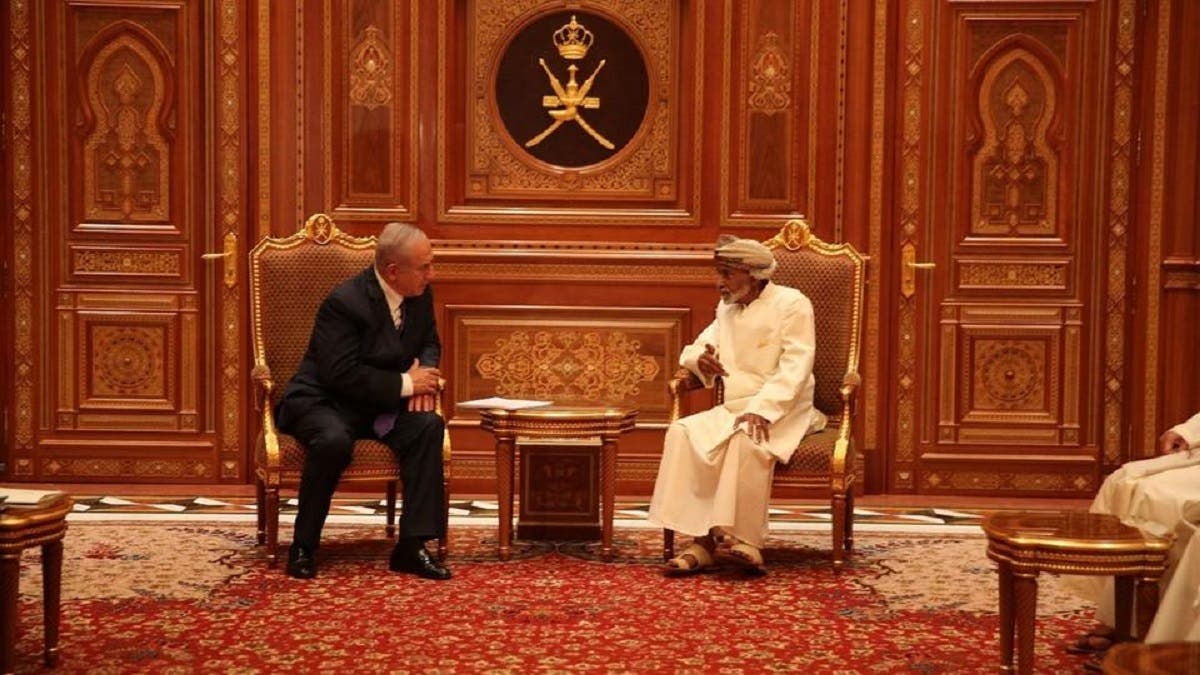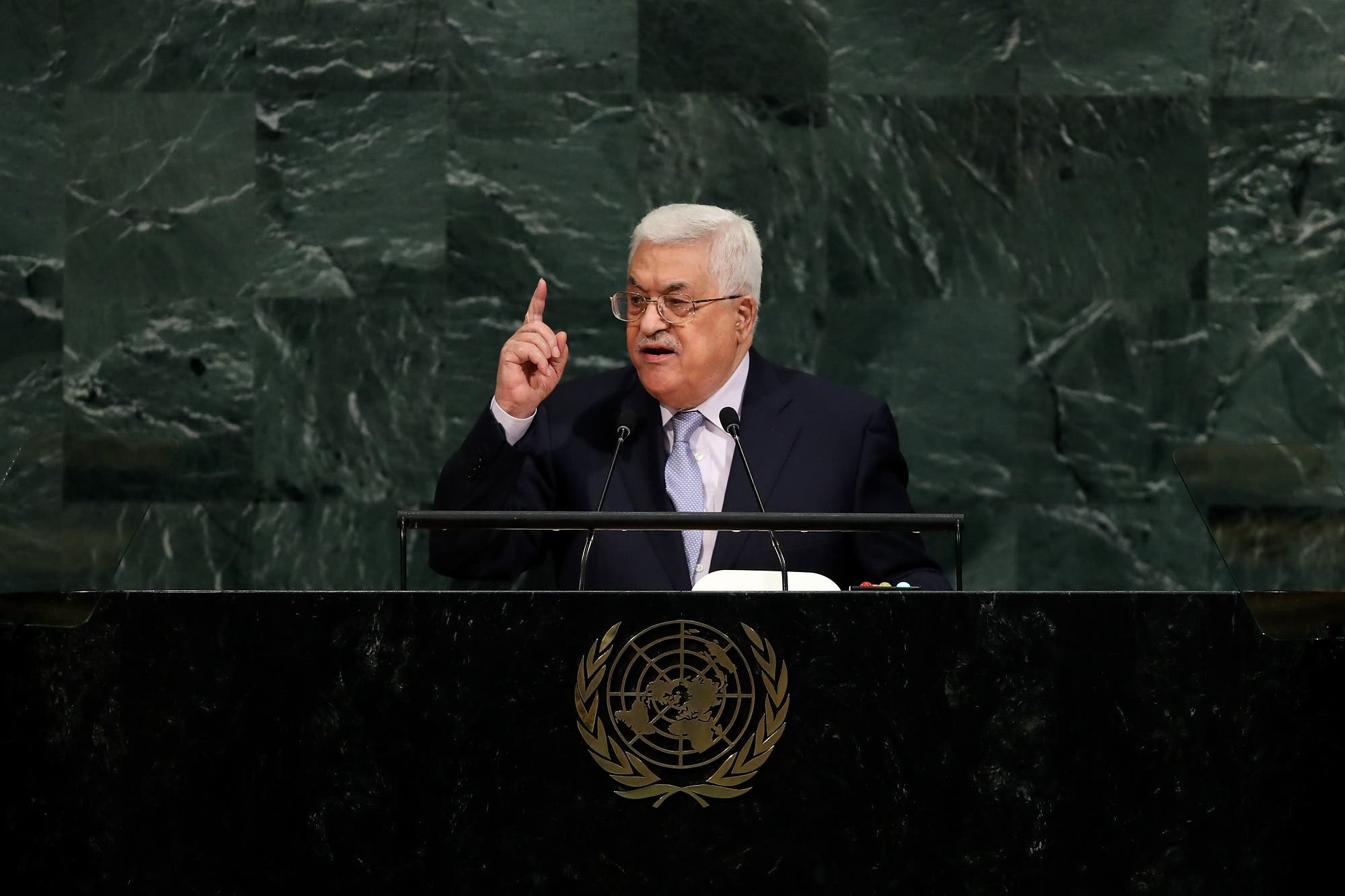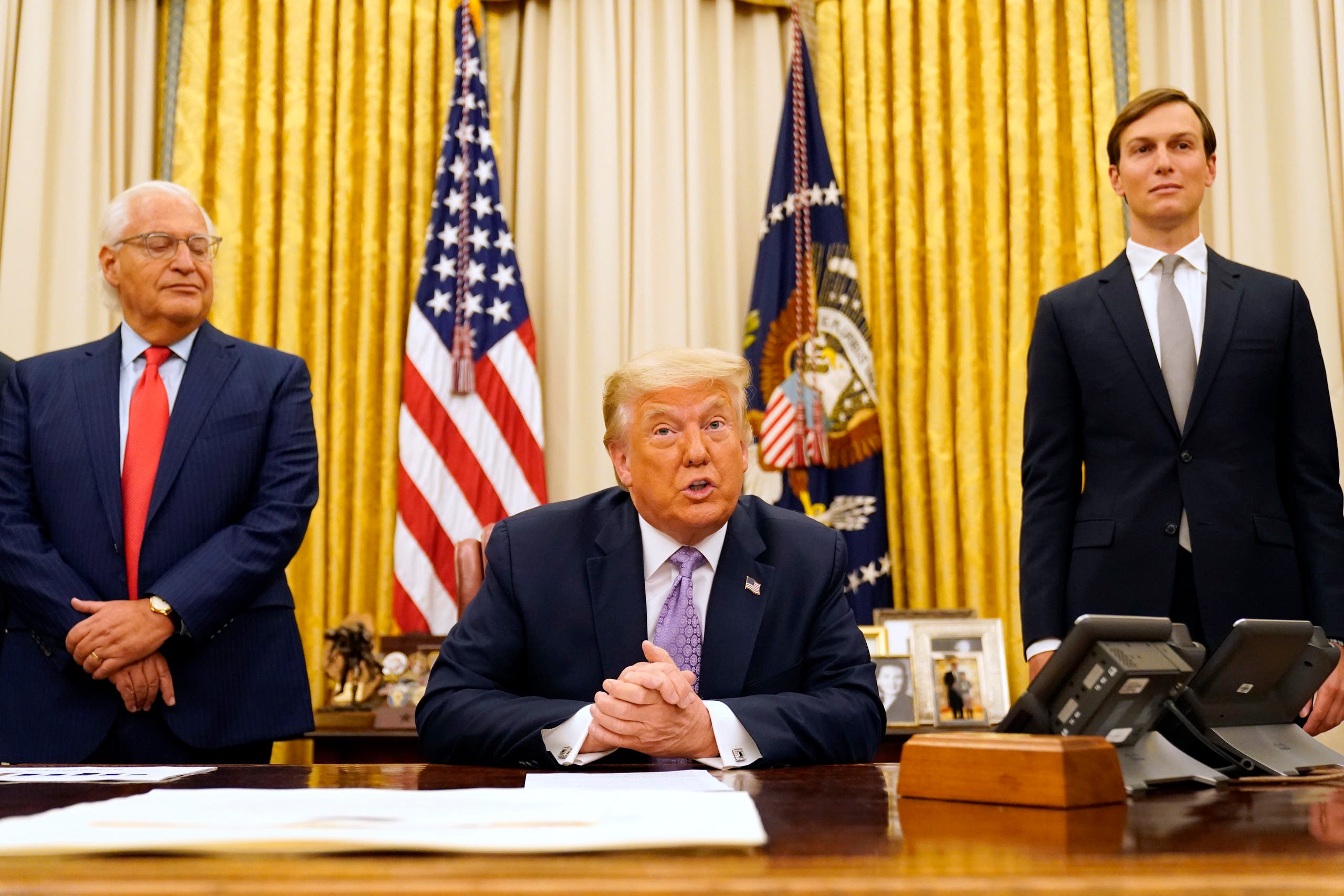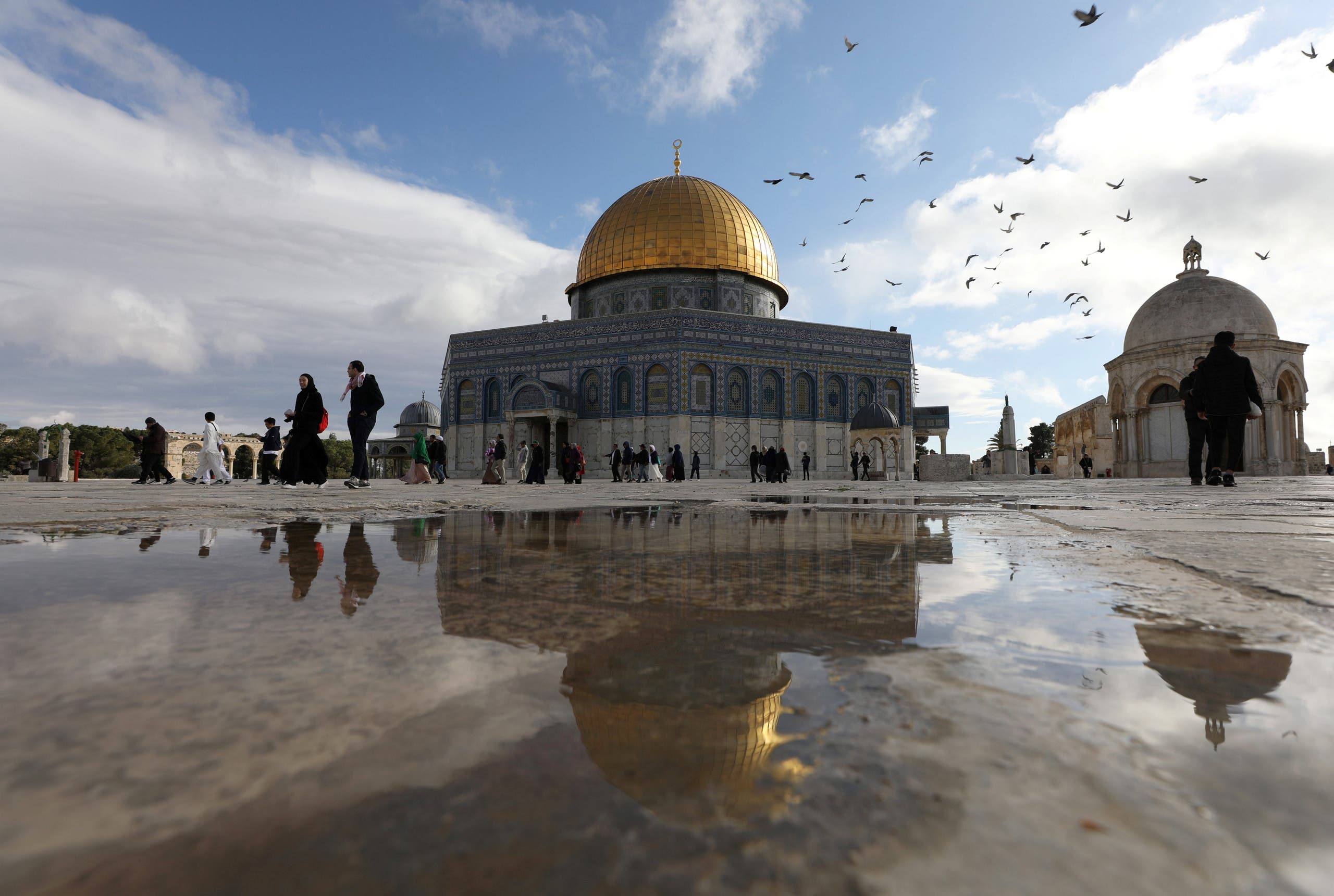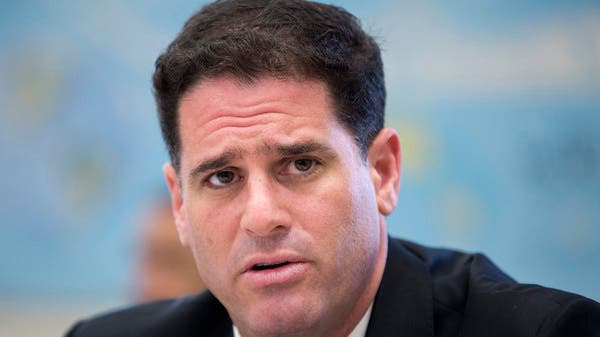
Israeli Ambassador to the United States Ron Dermer speaks to members of Congress on Capitol Hill in Washington. (File photo: Reuters)
Last week Israel and the UAE announced a
historic agreement to normalize relations between the two countries, in exchange for the
suspension of Israel’s annexation of Palestinian land.
One of the architects of the agreement was Israeli Ambassador to the US Ron Dermer.
Dermer sat down for an exclusive interview with Al Arabiya English on Friday, in which he predicts more Israel-Arab agreements will be announced soon. He also responded to critics of the deal and weighed in on remaining obstacles that must be overcome to resolve the Israeli-Palestinian conflict.
Q: It has been rumored that other Gulf countries are considering normalizing relations with Israel. Are you involved behind the scenes in any potential Israeli peace agreements with other Arab countries?
DERMER: Yes. But we are very conscious of the fact that doing this behind the scenes is very important, so that you can reach moments like the moment we had last week [with the UAE].
There are several countries where there are possibilities [for peace]. I don’t want to say this specific country or not, but there are several countries and we hope that we see another breakthrough very, very, soon - in the weeks, and months ahead.
Q: Turkish President Recep Tayyip Erdogan has condemned the UAE-Israeli agreement as a ‘hypocritical’ act by the Emiratis. Yet his country has diplomatic relations with Israel, Erdogan has visited Jerusalem, and Turkey requires Palestinians to obtain tourist visas before traveling to the country - but not Israelis. In light of these facts, why do you think Ankara has condemned the agreement?
DERMER: Turkey is condemning the Emirates for moving towards the relations that Turkey has with Israel - and has had for decades. We have an embassy in Ankara and Turkey has an embassy in Israel.
Yet they are castigating and excoriating the Emirates for moving their relationship closer to where the Turkish relationship is with Israel.
I think unfortunately the Turkish leader in recent years has not been a constructive force, not been a force for modernity in the region, and he perhaps sees himself as leading the Muslim Brotherhood throughout the Middle East.
You see very strong connections between [Erdogan] and Hamas, and Muslim Brotherhood populations throughout the Middle East. And I think it’s very, very unfortunate.
Q: What are your thoughts on the reactions from other Arab countries to the UAE-Israel agreement?
DERMER: I was pleased to see the response to what Abu Dhabi Crown Prince Sheikh Mohammed [bin Zayed Al Nahyan] has done, not only within the Emirates, but beyond. You saw positive statements from Bahrain, positive statements from Oman, and I think that if you understand a little bit about diplomacy in the Middle East, the Saudis said things that were constructive. [Egypt’s] President Sisi backed it.
Q: The Palestinian leadership has condemned the UAE-Israel agreement. Why do you think that is? Is it because they were not part of the talks?
DERMER: No. I think if they were part of the talks, they would try to undermine it during the talks. And they might have even succeeded at doing that.
Unfortunately the rejectionists among the Palestinians towards peace are the ascendant forces. We have had a century of conflict with the Palestinians and unfortunately, we have not had a Palestinian Anwar Sadat, a Palestinian King Hussain, or a Palestinian like Sheikh Mohammed that was willing to cross this Rubicon and make peace.
Q: In the US, former Obama officials, such as Ben Rhodes, have argued that this agreement is a publicity stunt to help US President Trump in November’s presidential election. What do you say to that?
DERMER: You really got to go out of your way in the United States to find people who aren’t happy with this agreement. I would say 98 to 99 percent of people are happy with it. I have been in Washington for seven years as ambassador and would say this is probably the piece of news that has brought the widest possible consensus around. I’ve seen tremendous support on both sides of the aisle.
Q: What do you say to Palestinians condemning the agreement and UAE leadership?
DERMER: I don’t think [Abu Dhabi Crown Prince Sheikh Mohamed] did this [agreement] neglecting the Palestinian people at all. I don’t think that’s how he sees it. It’s no question that he’s committed to seeing the Palestinians get self-determination.
UAE officials constantly told us throughout this process that they were committed to having a two-state solution between Israel and the Palestinians. They are committed to their future.
Q: Does Israeli leadership plan to reach out to the Palestinians to revive talks?
DERMER: We are always prepared for talks with the Palestinians. We have consistently said we are prepared to negotiate.
We want to be at peace with all our neighbors and we understand our immediate neighbors are the Palestinians. So we would like to see that conflict end. And I think Sheikh Mohammed’s decision helps advance a solution to that conflict.


